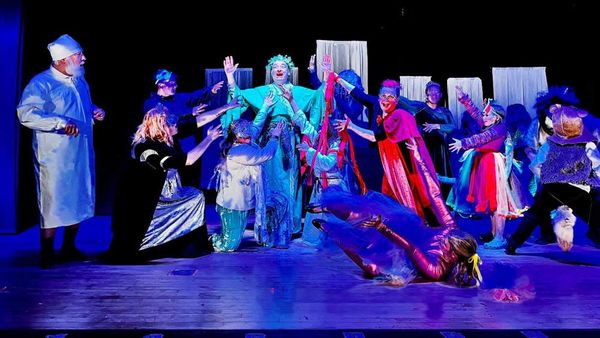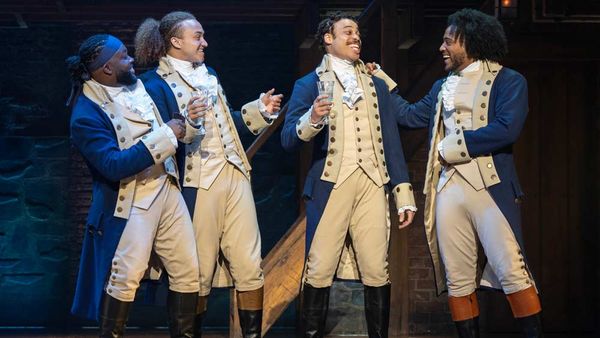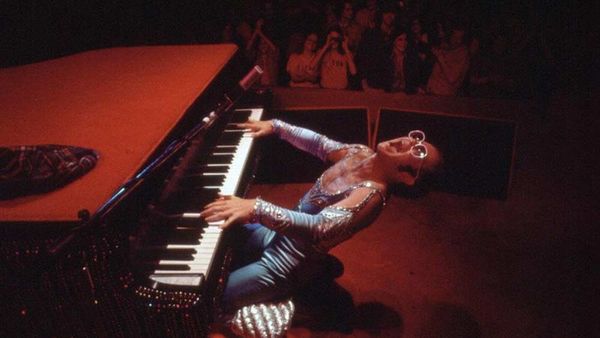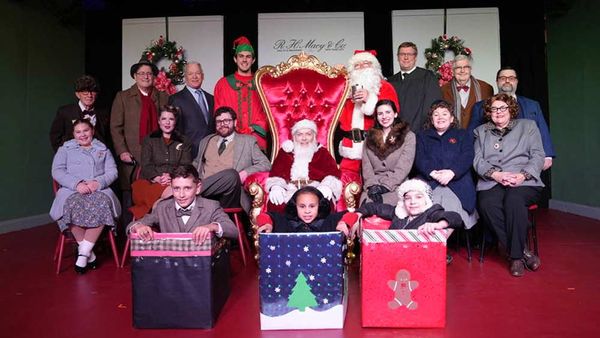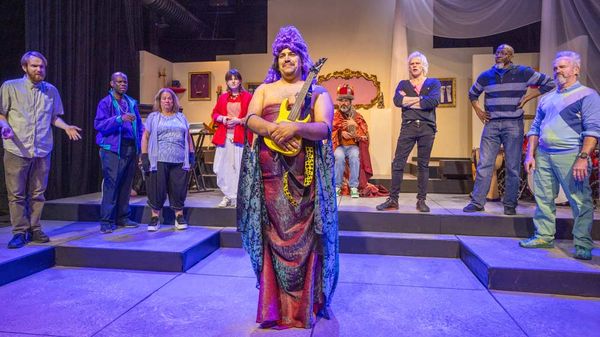March 22, 2011
Living in Exile
Kilian Melloy READ TIME: 3 MIN.
The Actor's Shakespeare Project finish their Winter Festival with the late Jon Lipsky's Living in Exile, a retelling, of sorts, of Homer's Iliad.
The troupe takes a classical approach to the material--which is probably in keeping with the company's usual Shakespeare-based focus. A narrator reads aloud the opening lines of The Iliad in the original Ancient Greek, lines rendered soon enough into Lipsky's riveting, lyrical vernacular.
"????? ????? ??? ????????? ???????..." Fury! O Muse, do sing of fury, the fury of Achilles. ASP actor Robert Walsh doesn't sing, but he does tell the tale, serving as muse and as the male cast of characters.
Walsh, who was dealing with an injury and so needed a wheelchair at the performance I attended, was like a modern-day Homer. The ancient poet of legend was said to be blind; Walsh's reliance on the wheelchair translated nicely into Lipsky's minimalist theatrical adaptation, which works to preserve the oral tradition by boiling everything down to a single set and two actors.
Walsh takes the parts of Achilles, Agamemnon, Patroklos, and others; Tamara Hickey takes the female parts, which consists pretty much of Briseus, the "war bride" of Achilles. Living in Exile explains the central conflict of the classic poem: When Agamemnon loses one of his war spoils--a young woman who was the daughter of a priest--he takes it out on Achilles by appropriating Briseus for himself. This is just one more twist in a long-standing and steadily increasing tension between the two men. In his anger, Achilles withdraws from the war, at which point it seems that the conquest of Troy will never be attained. This is where The Iliad starts.
But that's Act Two. Act One explores what happened beforehand, narrating the events of the Trojan War from well before the Iliad's starting point a decade after the ships of the "well-greaved Achaeans" arrived to lay siege to the city of Troy. Slipping from voice to voice and character to character, Walsh lays out the long, psychologically stressful years that preceded the fateful showdown between Achilles and Agamemnon: How Agamemnon sacrificed his daughter to appease the gods and gain a favorable wind to sail the fleet to Troy; how Briseus came to be captured, and why she was the only woman left alive in her house; the gruesome and frightening reputation she was assigned by the Greeks, who thought that she single-handedly killed her female relatives to save them from the invaders; the friendship that developed between Briseus and Patroklos, and the friendship (reputed to be homoerotic) between Patroklos and Achilles.
If the ancients told their stories to audiences gathered around fire pits and hearths, we do much the same today. We gather in the living room, where the hearth has been replaced by the television, and narrative complexity and poetry are often sacrificed to violent spectacle and sex. But the elements of storytelling remain the same, and Lipsky proves it: his play is full of gore and seduction. One scene in which Briseus and Achilles both nearly drown when Briseus tries to kill him segues into tenderness; it's a highly charged description, and the actors carry it off gorgeously.
While Hickey and Walsh serve as storytellers, exerting an absolutely mesmerizing pull over the audience, sound designer and musician Bill Barclay and musician Ruby Rose Fox create auditory ambience and simple, desirable sound effects. Stephen Cumming's original score, played by Barclay and Fox on piano and a few other instruments, isn't intrusive, but it sets the mood; so, too, does Jason Ries' lighting design.
Director Allyn Burrows sets the play in what looks like a living room--the modern hearth and story-space mentioned above. He could have set the play on a deserted beach, or in an empty black space, but the living room environment is our entree to the play's deepest, most resonant levels: This is not the theater of the ancient. It is the theater of the immortal core of humanity, with all its glory and sorrows. A narrator may murmur words in a language from four thousand years ago, and there may be gods and warriors with heroic names drawn from a long-ago era, but the story belongs as much to today--to us--as to the ancients.
This text will be the link
Kilian Melloy serves as EDGE Media Network's Associate Arts Editor and Staff Contributor. His professional memberships include the National Lesbian & Gay Journalists Association, the Boston Online Film Critics Association, The Gay and Lesbian Entertainment Critics Association, and the Boston Theater Critics Association's Elliot Norton Awards Committee.


